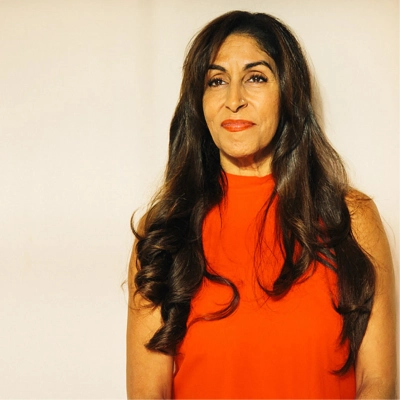In the ever-changing business world, adaptability is key to success. This article presents real-world examples of visionary leaders who have transformed challenges into opportunities. Drawing from the experiences of industry experts, we explore how flexibility and responsiveness can lead to remarkable achievements in various business scenarios.
- Founder Adapts Product for Enterprise Success
- CEO Reimagines Business Amid Market Collapse
- Co-founder Enhances Platform with User Feedback
- Leader’s Inner Growth Drives Business Expansion
- CEO Rebrands Agency to Improve Accessibility
Founder Adapts Product for Enterprise Success
A few years ago, we were working with a founder who had spent nearly two years developing a B2B SaaS platform targeting mid-sized logistics firms. He was a brilliant mind, ex-McKinsey, but deeply entrenched in his product assumptions. After lukewarm investor feedback and a dismal pilot uptake, he didn’t double down — he paused, listened, and shifted. Instead of being defensive, he sat with one of our team members for two weeks, spoke with users directly, and realized his product fit better as a modular solution for enterprise players rather than the full-stack suite he originally envisioned.
He didn’t pivot the whole business; he just restructured the way the offering was packaged and sold. That flexibility — staying true to the mission but being fluid in the approach — impressed me. Within six months, he closed a €1.5M round with a compelling narrative around scalability and adaptability. We often see founders who treat adaptability like a weakness, but in this case, it was what made the business investable.
 Niclas Schlopsna
Niclas Schlopsna
Managing Consultant and CEO, spectup
CEO Reimagines Business Amid Market Collapse
A few years ago, I watched the visionary CEO of a small company lead a major transformation when a key international market collapsed almost overnight. Instead of clinging to the old strategy or waiting for conditions to stabilize, she gathered her leadership team and asked a different question: “If this market never returns, what will we wish we had built today?”
What followed wasn’t just a pivot, but a bold reimagining of the business. She paused several long-standing projects, redirected resources to a smaller but faster-growing region, and set up cross-functional pods that operated like internal startups. Some resisted, others were uncertain, but she didn’t pretend to have all the answers. She communicated openly (also about potential risks), listened intently, and adapted based on input — all without losing sight of her vision.
What impressed me was the quality of her flexibility. She didn’t waver on purpose — she shifted methods. That kind of adaptability is rare. Many leaders either double down blindly or shift erratically. But she stayed grounded in her values while rethinking how to move forward.
Twelve months later, her company had launched two new product lines, entered an unexpected market, and emerged with a more agile culture. She didn’t just survive the crisis — she used it as a proving ground for innovation.
That experience reminded me that visionary leadership goes beyond foresight. It includes having the courage to release what no longer works and the clarity to build what’s next — even when the path is still unfolding. After all, nothing is certain. But a strong vision always holds creative power.
 Regina Huber
Regina Huber
Transformational Leadership Coach, Speaker, Author, CEO, Transform Your Performance
Co-founder Enhances Platform with User Feedback
One example that stands out is working with my co-founder, Chris Wright. As we built the platform, we saw how much people needed more than just franchise listings; they needed guidance, real support, and confidence in their decisions.
Chris jumped in right away. He laid out the full customer journey, improved how we onboard users, and made sure the product actually helped people move forward. His ability to respond to feedback, adjust priorities, and keep things moving with purpose made a huge difference.
That kind of adaptability sets the tone for the team and helps us stay focused on building what people actually need.
 Alex Smereczniak
Alex Smereczniak
Co-Founder & CEO, Franzy
Leader’s Inner Growth Drives Business Expansion
A visionary leader I worked with stopped pushing their team harder and instead leaned into empathy, both for themselves and their team. They courageously addressed a personal matter and faced hard truths about a romantic relationship that had run its course. In working through this silent heartache, self-love expanded within them, and their consciousness was raised.
This inner transformation allowed them to truly tune into what their team was sharing and respond with authentic presence. The business grew remarkably from £1.5 to £4.5 million in two years, and there was an energy of trust and cohesion throughout the team.
What impressed me most was their recognition that the most powerful shift wasn’t in strategy but in focusing on inner work. This fundamentally changed who they were as a leader, evolving from visionary to deeply connected, heart-centered, healthy risk-taking, and adaptable. Their story perfectly illustrates how addressing what lies beneath the surface creates the foundation for extraordinary external results.
 Hema Vyas
Hema Vyas
Psychologist and Partner at Human-Centred AI
CEO Rebrands Agency to Improve Accessibility
When I became President & CEO of Atlanta’s oldest and largest HIV/AIDS housing agency in 2021, I quickly recognized a challenge: the name Jerusalem House often led people to assume it was faith-based. This misunderstanding sometimes created hesitation for those seeking help.
In 2023, I led the organization through a name change to Status: Home. The old name sometimes gave people the wrong idea about what the organization was or who it served. The new name was chosen to be clear and welcoming. It better explained their mission: providing safe, stable housing for homeless and low-income people in Atlanta living with or affected by HIV/AIDS.
I also tackled Atlanta’s rising housing costs by leading the agency to purchase five apartment buildings over two years. Owning these buildings meant they didn’t have to worry as much about rent increases or losing leases. It gave them more stability and allowed them to use their funding in a way that better served residents.
Today, Status: Home houses nearly 400 people each year, more than any similar provider in the area. I also serve as Chair of the National HIV/AIDS Housing Coalition Board of Directors, supporting housing efforts beyond Atlanta.
 Maryum Phillips
Maryum Phillips
President & CEO, Status:Home

